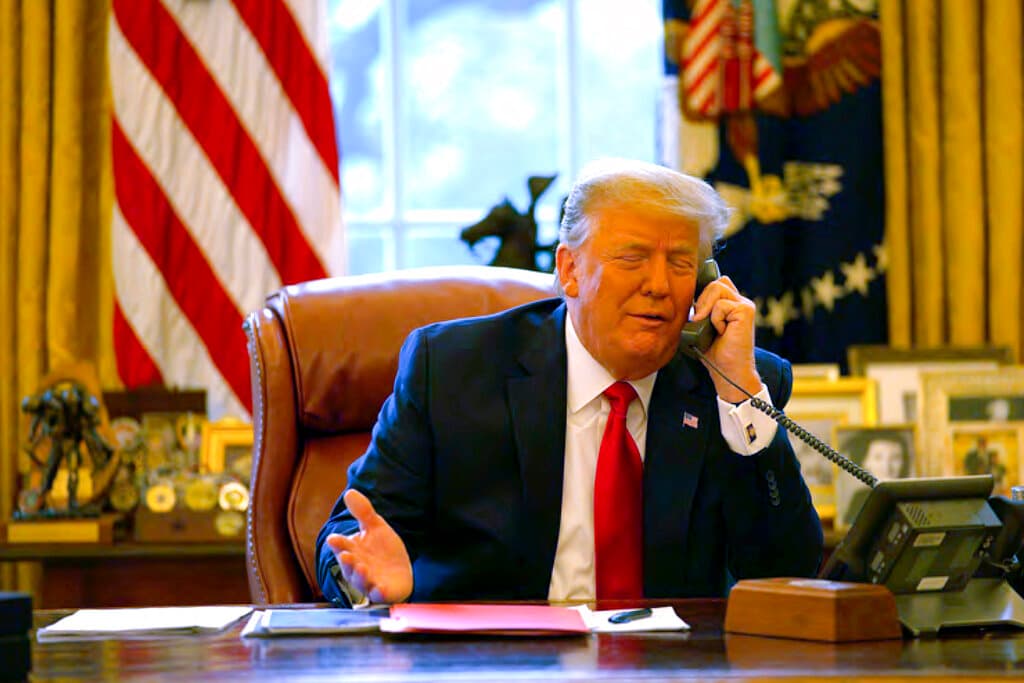Trump’s Legal Peril in Georgia Deepens as Jack Smith Calls Witnesses, Fani Willis Gets Set To File Charges
Jack Smith’s summoning of Georgia’s secretary of state suggests he’s closely eyeing Donald Trump’s notorious phone call with him as he probes interference in the 2020 vote.

The summoning of Georgia’s secretary of state, Bradley Raffensperger, to confer with Special Counsel Jack Smith’s office at Atlanta signals a convergence between two investigations, both of which signal legal peril for President Trump.
Mr. Trump is, in the Peach State, caught between the Scylla of Mr. Smith’s federal criminal investigation and the Charybdis of District Attorney Fani Willis’s state criminal probe — she is based at Fulton County. With criminal charges already lodged in New York and Florida, Georgia appears set to emerge as a fresh jurisdictional hotspot for Mr. Trump.
While Mr. Smith will likely not bring charges in Georgia — the only place Ms. Willis is empowered to do so — the overlap in their investigations suggests that both are working off of similar facts and possibly building rhyming theories of liability. The Constitution’s interdiction of double jeopardy does not apply to charges brought under separate state and federal covers.
Mr. Raffensperger is expected to confer with the special counsel’s team on Wednesday, an appointment first reported by the Washington Post. This appearance in the flesh comes after Mr. Smith issued a subpoena for documents in December and suggests that the investigation has matured past a paper chase.
The secretary of state has attracted the interest of not only the special counsel, but a prosecutor closer to home as well. He is a crucial player in the criminal investigation being led by Ms. Willis into efforts to overturn the 2020 presidential election result in her home state, where President Biden won by a little more than 11,000 votes.
That outcome explains why Mr. Raffensperger, an engineer who previously served in Georgia’s house of representatives, is an object of such interest to two prosecutors mulling whether to charge the former president with crimes related to the 2020 election. Both appear to be in the advanced stages of such a choice.
Days before January 6, 2021, Mr. Raffensperger’s phone rang, and on the line was the president, who told the official whose responsibilities include elections: “All I want to do is this. I just want to find 11,780 votes, which is one more than we have. Because we won the state.”
Mr. Raffensperger told the January 6 committee: “There were no votes to find. That was an accurate count that had been certified.” Mr. Trump has described that phone call as “absolutely perfect” and has denied doing anything wrong. The grand jury in Georgia heard testimony from Governor Kemp, Senator Graham, and attorneys Rudolph Giuliani and John Eastman.
Last year, Mr. Raffensperger testified before a special grand jury convened by Ms. Willis, one that ultimately recommended indicting more than a dozen people, a roster whose names are under seal. That jury’s forewoman, Emily Kohrs, told NBC that “there are certainly names that you will recognize” on the list as well as “names also you might not recognize.”
Both Mr. Smith and Ms. Willis appear to be interested in the so-called fake elector scheme, an effort to have Vice President Pence certify a second slate of electors who would cast votes to Mr. Trump rather than Mr. Biden. Its theoretical underpinnings were devised by Mr. Eastman, and it was thwarted when Mr. Pence refused to go along with the scheme.
Ms. Willis disclosed that 16 of these fake electors were criminal targets of her investigation. Of these, eight have been offered immunity deals, suggesting that they have traded testimony for protection from prosecution. For his part, Mr. Smith has lately heard from a set slate of fake electors based at Nevada.
Ms. Willis has promised to announce charges between July 11 and September 1, and in a missive to local law enforcement she requested that “judges not schedule trials and in person hearings during the weeks beginning Monday, August 7 and Monday, August 14,” suggesting that she could be clearing space for an arraignment of Mr. Trump during that window.
The district attorney requests “heightened security,” during that stretch, noting that the announcement of charges “may provoke a significant public reaction,” and she thanks law enforcement and court personnel for their “consideration and assistance in keeping the Fulton County Judicial Complex safe during this time.”

